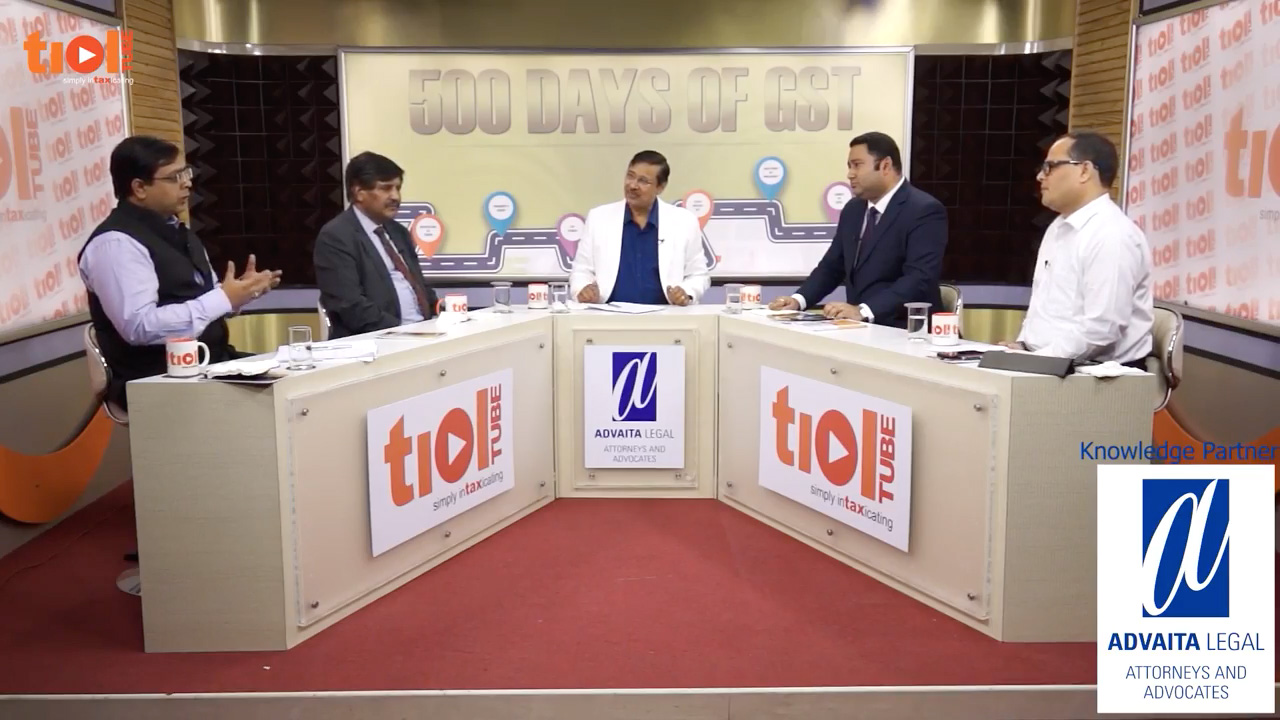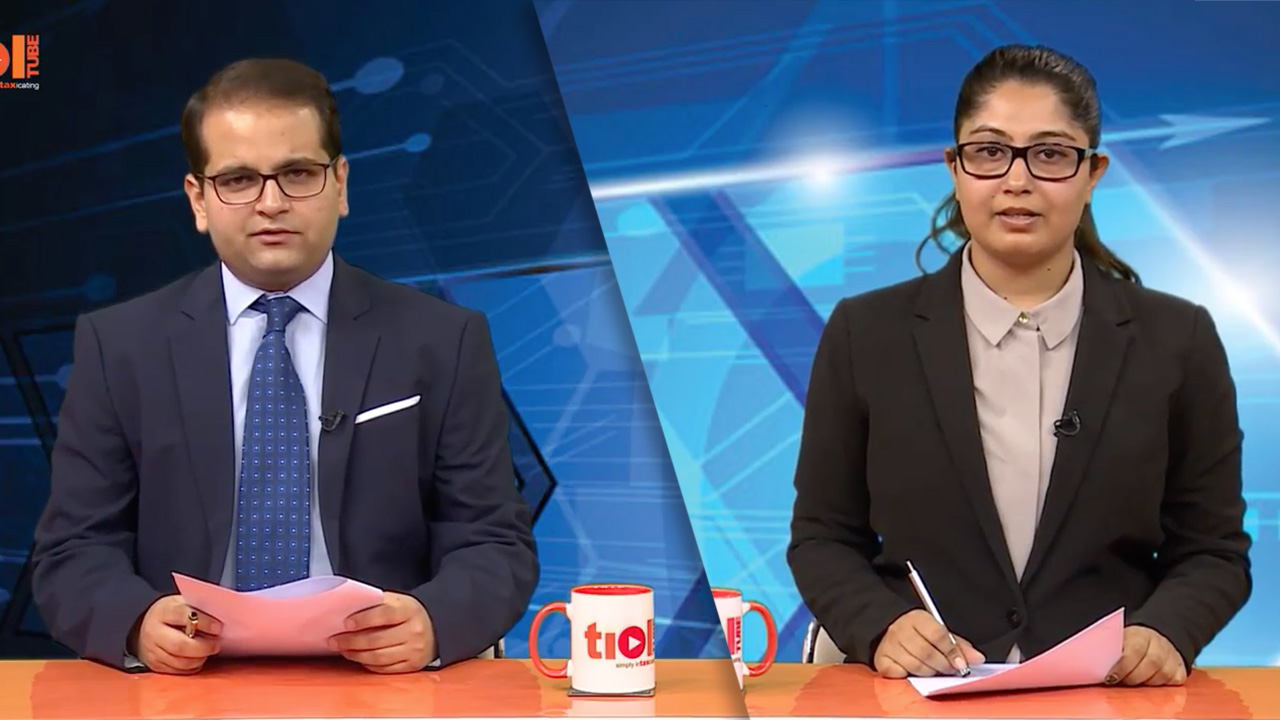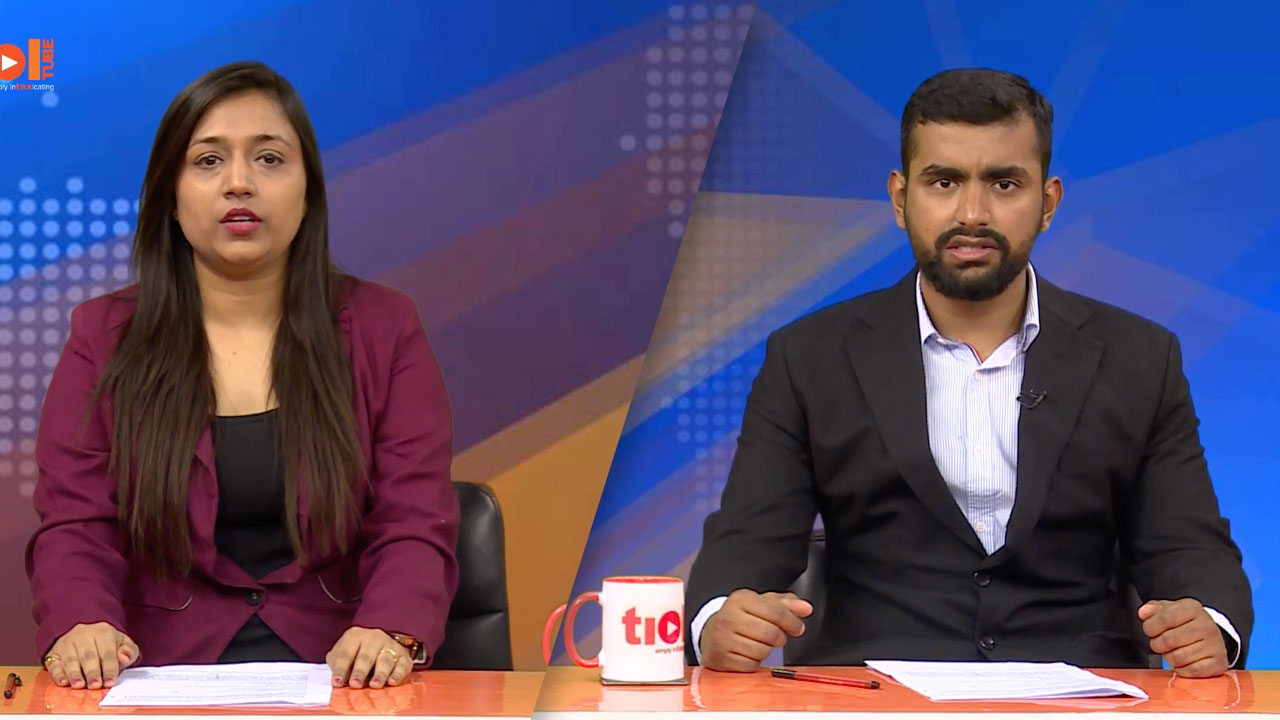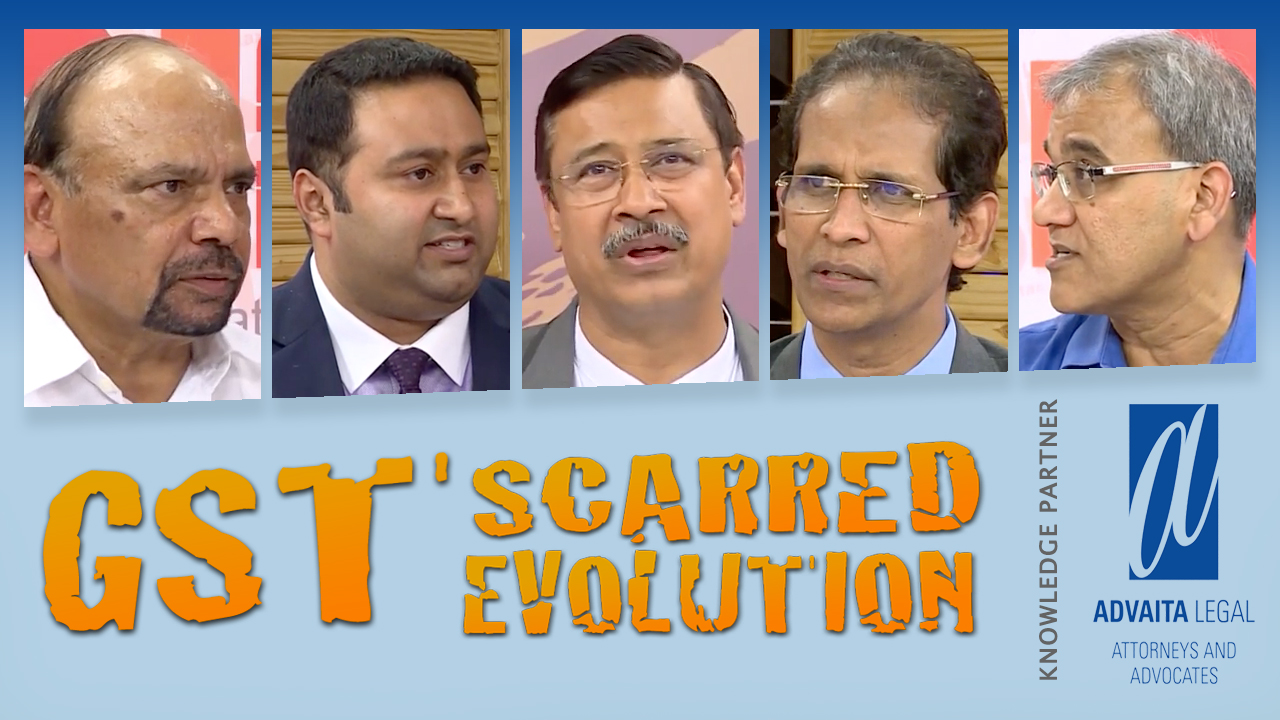SERVICE TAX
2018-TIOL-2420-HC-HP-ST
Austees Hydro Power And Construction Company Pvt Ltd Vs UoI
ST - The petitioner is aggrieved by order passed by Joint Commissioner, Central GST Commissionerate, Shimla - Vide the said order, demand of services tax has been confirmed with interest - Likewise, penalty equivalent to services tax too has been levied - Respondents has taken a preliminary objection that the impugned order is appealable under Section 85 of FA, 1994 - In fact, the forwarding letter attached with the impugned order itself recites that if either party is aggrieved of impugned order, it may file an appeal within 60 days - Once the petitioner has got efficacious alternative remedy of statutory appeal, the same ought to have been availed by it before invoking the writ jurisdiction of this Court - The writ petition is accordingly disposed of by relegating the petitioner to avail the alternative remedy of appeal under Section 85 of FA, 1994 - Since the time limit to file the appeal might have expired, the prayer of petitioner for condonation of delay in filing appeal deserves acceptance - Consequently, Appellate Authority is directed that in case petitioner files appeal within a period of two weeks, the delay in filing the appeal may be condoned and the appeal may be decided on merit and in accordance with law - It would meet the ends of justice, if petitioner is asked to make such pre-deposit in respect of liabilities other than the penalty equivalent to the amount of service tax: HC
- Petition disposed of: HIMACHAL PRADESH HIGH COURT
2018-TIOL-3444-CESTAT-AHM
Firmenich Aromatics India Pvt Ltd Vs CCE & ST
ST - Demand notice issued seeking service tax on reverse charge basis under OIDAR, Technical Inspection & Certification Service and Commercial training and coaching services - Total Tax paid of Rs.1,31,61,168/- in the month of February 2013 and November 2013 and CENVAT credit availed - Appeal filed against o-in-o dated 30.08.2013 contesting demand under Commercial Training & Coaching services and only the portion of penalty imposed in respect of the other two services and contending that entire exercise is revenue neutral and, therefore, there cannot be any intention to evade payment of tax; that commercial training was entirely provided abroad and there could not be any liability to tax - AR arguing that appellant never contested the liability to tax in respect of Commercial Training before lower authority.
Held: Liability of tax is a question of law which can be raised at any time - since training on which tax has been demanded was undertaken abroad, there cannot be any liability to tax in view of rule 3(2) of Taxation of Services Rules, 2006 - appeal on this count is allowed - in respect of the tax demand on the other two counts, same has been paid and credit has been availed, which credit has not been challenged by Revenue - moreover, issue regarding Software being service or goods was under challenge before Madras High Court and was clarified by the decision in the case of Infotech Software Dealers Association [2010-TIOL-620-HC-MAD-ST] - in view of the above facts, invoking section 80 of the Finance Act, 1994, penalty imposed u/s 76 and 78 are set aside - Appeal is partly allowed: CESTAT [para 6, 7]
- Appeal partly allowed: AHMEDABAD CESTAT
ST - Assessee is registered under category of ‘Transportation of Goods by Road Services' and exported Iron Ore Fines and Lumps and accordingly filed refund claim in terms of Rule 5 of CCR, 2004 - A SCN was issued to the assessee proposing to reject entire refund on the ground that the goods manufactured and exported by them were exempted from payment of excise duty by virtue of Notfn 4/2006 CE and in terms of Rule 6(1) of Cenvat Credit Rules they were barred from availing the cenvat credit - Commissioner (A) has rightly held that the assessee is entitled to cenvat credit and there is no provisions contained in Rule 6(1) of Cenvat Credit Rules when the final product is exempted from Central Excise duty by virtue of Notfn 4/2006 CE - Further, Karnataka High Court in case of ANZ International - 2009-TIOL-40-HC-KAR-CX , it has been held that the provisions of Rule 6 of Cenvat Credit Rules are not applicable when the goods are exported under bond - The High Court judgment has been maintained by Supreme Court and followed by Tribunal in the case of Vibhutigudda Mines Pvt. Ltd . - In the case of Jolly Board Ltd. - 2014-TIOL-316-CESTAT-MUM wherein it has been held that cenvat credit is admissible in terms of Rule 6(6) when goods are exported and there is no requirement to execute any bond if the exported goods are exempted - The said decision of Tribunal has been affirmed by High Court of judicature at Bombay - Therefore, by following the ratios of said decisions, there is no infirmity in the impugned order passed by Commissioner (A) - Consequently, no merit found in Revenue's appeal: CESTAT
- Appeal dismissed: BANGALORE CESTAT
Amardeep Construction Vs CCE & ST
ST - Assessee was availing benefit of notfn 1/2006-ST, in respect of Construction Service provided by them - No Cenvat Credit was availed in the month of October to December 2006, February and March 2007 - The credit was availed and utilised only in the month of January 2007 - The assessee has claimed that availing of credit in month of January 2007 was clerical mistake and therefore, as soon as the same has pointed out they had returned in the terms of Rule 7B of STR, 1994 - It is apparent that this Rule is designed to take care of such contingencies, the fact that the assessee was not availing Cenvat Credit is clear from the fact that no credit was availed in five month out of six covered in Service Tax return - Since, they have filed revised return on 08.05.2007 that is within the period described under Rule 7B, it supersedes the original return filed by them - In these circumstances, no Cognizance needs to be taken of the first return filed by assessee wherein, the Cenvat Credit was availed and utilised - Consequently, the appeal of assessee is allowed - Revenue is in appeal against invocation of Section 80 to set aside imposition of penalty under Section 78 of the Finance Act - Since, demand and duty does not survive, the imposition of penalty cannot also survive: CESTAT
- Assessee's appeal allowed: AHMEDABAD CESTAT
CENTRAL EXCISE
CX - The assessee is a 100% EoU engaged in manufacturing lighters and lighter components, for which it imported capital goods & also procured them locally - It claimed exemption from Customs duty as per Notfn No 52/2003-Cus & Notfn No 22/2013-Cus - The assessee obtained permission to sub-contract part of the processing work & were granted permission to carry out production on job work basis & also remove the capital goods without payment of duty - The Department opined that the assessee was not authorized to remove certain capital goods which the Department classified as machinery - Duty demands were raised with interest & penalty - Further demand was raised on grounds that the assessee removed locally procured goods to job work unit without reversing credit availed - Such demands were upheld by the Commr.(A)
Held: It is seen that the authority concerned had permitted the assessee to remove capital goods for job work purposes as per Notfn No 50/2003 - Thereby, the demand raised on this count is without any basis - Regarding reversal of credit on locally procured goods cleared to job work unit, it is seen that even if the credit was reversed, the assessee would still be eligible credit on Excise duty paid on the capital goods when brought back to the EoU - Hence the exercise of reversing credit is revenue-neutral - Hence the demands on this basis is set aside: CESTAT (Para 1,5,6)
- Assessee's appeal allowed: CHENNAI CESTAT
CUSTOMS
Cus - The first appellant is an SEZ unit engaged in manufacturing gold studded jewellery, diamond studded stones, silver & platinum studded jewellery - As the final jewellery was exported, the assessee was permitted to make duty free import of gold, as per the SEZ Act and Rules - It procured 66 gold bars weighing about 8000 grams - The DRI intercepted the fourth appellant whereupon 66 gold bars of the exact weight were recovered from him - Such gold was being taken to the second appellant in exchange of ornaments and jewellery brought from them by the SEZ Unit - Some quantity of gems & stones were recovered too - The goods were seized & statements were taken from various persons - The adjudicating authority confiscated the goods and imposed penalties on the appellants u/s 111(d), 111(e), 111(j) & 111(o) of the Customs Act on the assessee - Penalty u/s 113(d) was also imposed on the first appellant company - Redemption fine was also sought to be levied - Hence the appeals by the appellants contesting such levies and also appeal by the Revenue seeking absolute confiscation of the goods.
Held: That the transaction of gold bars & gold jewellery was illicit in nature is not disputed - This is because the goods were moved without covering documents and without following any procedure - As an SEZ is considered foreign terrirory for purposes of taxation, goods cannot freely be removed from SEZ - Goods imported by SEZ are either meant for export or to manufacture goods bound for export - The appellant knowingly removed the goods without following proper procedure & so violated provisions of both Customs Act and SEZ Act and certain RBI guidelines too - Hence the assessee cannot evade penalty by claiming commercial expediency - Regarding imposition of penalty u/s 113(d), where the same has been imposed on the partnership firm, no separate penalty needs to be imposed on the partners therein - Penalties imposed on employees in the company are unsustainable since they are only working under directions of the employer firm - Moreover, the situation in the present case does not call for absolute confiscation of the goods - It is settled law that the Tribunal cannot intervene in the discretion exercsied by adjudicating authority for not ordering absolute confiscation of the gold: CESTAT (Para 1,5,6)
- Assessees' appeals partly allowed: AHMEDABAD CESTAT
Cus - During the period of dispute, the DRI received intelligence input of an attempt to smuggle Red Sanders wood from Nhava Sheva port to Saharanpur ICD - The DRI intercepted the consignment, searched it and found the red sanders wood concealed in it - The smugglers had used the IEC code of an entity and certain documents recovered revealed that a sum of money had been paid to the proprietrix of such company - In her statements, she claimed that her spouse was involved in carrying out the business activities - Statements of the spouse were taken wherein he named other individuals involved in the smuggling network - Based on statements given by one such person, the Department searched a godown in Saharanput from where further quantity of red sanders wood logs were recovered - On adjudication, the wood logs were confiscated u/s 113(d) & 113(e) of the Customs Act, 1962 & penalties were imposed on each of the appellants u/s 114(i).
Held: The adjudicating authority correctly noted how the first appellant acted as an authorized signatory for the exporting firm - Even though the first appellant contravened provisions of Section 114(i) by attempting to export prohibited goods, the penalty imposed on him is on the higher side & merits being reduced - The other two appellants mere took a godown on rent, where the red sanders wood had been stored - They have done no such act which is punishable under the Customs Act - Hence no penalties are imposable on them - Hence appeal of first appellant is partly allowed and appeals of the other appellants are allowed in full: CESTAT (Para 1-13,20,21)
- Assessees' appeals partly allowed: ALLAHABAD CESTAT |








